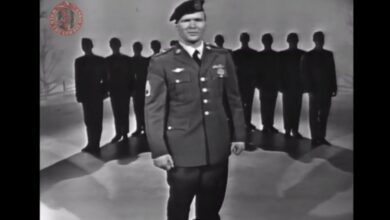I Really Love This Don Williams Song; Did He Know How Remarkable His Talent Was?
Don Williams’ song “Lord, I Hope This Day Is Good” exemplifies his remarkable ability to blend simplicity with deep emotional resonance. Released in 1981 on his album *Especially for You*, the track quickly became a hit, topping the country charts for an impressive 20 weeks, marking Williams’ 12th number one single and reinforcing his stature as a significant figure in country music. The song represents not only commercial success but also the emotional depth that characterized Williams’ career.
Written by Dave Hanner, the song embraces the essence of a heartfelt prayer for a brighter day, expressing a genuine wish for peace and happiness. Its lyrics present a humble request for a good day, encapsulating the universal human desire for comfort and hope during challenging times. The relatable theme speaks to the daily struggles many endure, resonating especially well during moments of uncertainty and stress. Williams’ gentle and soothing vocal delivery, which earned him the nickname “The Gentle Giant,” beautifully complements the lyrics, embodying a powerful voice paired with an unassuming presence. His remarkable skill in expressing deep emotion through straightforward lyrics and melodies showcases his exceptional talent and contributes to the enduring appeal of the song, allowing audiences to forge a connection with its sentiments.
“Lord, I Hope This Day Is Good” strikes a chord with listeners due to its comforting and relatable message. Its timeless theme of seeking tranquility and optimism in difficult times has made it a beloved classic. The song’s lyrical simplicity, combined with Williams’ warm vocal tones, creates an inviting atmosphere that encourages reflection. This effect is enhanced by Williams’ overall musical philosophy, which prioritizes emotional authenticity over elaborate production. His minimalist approach allows listeners to focus on the lyrics and the feelings they evoke, fostering a space for contemplation.
Over the years, the song has inspired numerous cover versions, each adding a unique twist to this beloved classic. Noteworthy artists like Anne Murray and Lee Ann Womack have offered their interpretations, demonstrating the song’s widespread appeal and lasting influence within the music community. These versions highlight the song’s versatility and its ability to connect with audiences across diverse musical genres and generations, each interpretation enriching the original while continuing to communicate its core message of hope and a yearning for a brighter day.
Born in Floydada, Texas, in 1939, Don Williams began his music journey in the 1960s with the folk-pop ensemble Pozo-Seco Singers. After finding success with the group, he transitioned to a solo career that showcased his smooth baritone voice and laid-back style. His music often incorporates storytelling that captures the essence of everyday life. Hits like “Tulsa Time,” “I Believe in You,” and “Good Ole Boys Like Me” solidified his status as a respected figure in the country music landscape, reflecting themes of love, nostalgia, and the values inherent in rural life.
Williams’ songs became anthems for many, offering comfort through his relatable lyrics. His understated approach to performance and recording emphasized emotional authenticity rather than flashy theatrics, setting him apart from his peers. This dedication to genuine artistry defined his career and established him as a cherished and respected figure among fellow musicians. His impact is evident in the work of many contemporary country artists who cite him as a primary influence, inspiring a movement towards more heartfelt and sincere songwriting.
The gentle yet impactful nature of Williams’ music has forged a legacy characterized by his ability to connect deeply with his audience. By blending melody with lyrical honesty, he has distilled complex emotions into accessible expressions. His work encourages listeners to reflect on their own experiences while offering comfort and understanding during trying times. “Lord, I Hope This Day Is Good” remains a treasured part of his discography, embodying his signature approach to music that seeks to uplift and resonate.
Throughout his life, Williams continued to perform and record, nurturing a devoted fan base and receiving numerous accolades, including induction into the Country Music Hall of Fame. His ability to connect through music only grew stronger with time, bridging generational divides and affirming the timeless relevance of his work. His songs serve as poignant reminders of simpler times, resonating with both those who experienced the eras he sang about and newer audiences discovering his music for the first time. This cross-generational appeal underscores the lasting significance of his themes of love, resilience, and hope.
In summary, Don Williams’ contributions to country music are both profound and enduring. “Lord, I Hope This Day Is Good” highlights his extraordinary talent for transforming everyday feelings into beautifully crafted songs that resonate with sincerity and warmth. His gentle spirit, coupled with a steadfast commitment to authentic storytelling, has secured him a special place in the hearts of music lovers everywhere. Reflecting on his legacy, it becomes evident that Williams not only captured the essence of life’s struggles and joys through his music but also offered a reassuring sense of hope that continues to inspire and uplift. His artistry serves as a powerful reminder that often, the simplest expressions of human emotion create the most lasting impressions, providing wisdom and comfort to those who listen.





